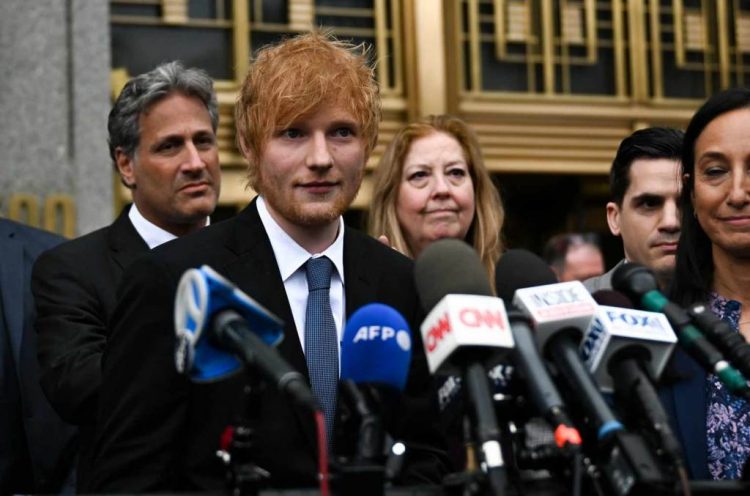Ed Sheeran‘s copyright case for “Considering Out Loud” is way from the primary of its form, however it units a brand new precedent for all circumstances concerning musical integrity going ahead. How does Sheeran’s case impression the music trade, and what has prompted the current rise in copyright circumstances?
The most recent episode of Billboard Explains dives in to music copyright lawsuits of the previous and current, beginning with Sheeran’s “Considering Out Loud” versus Marvin Gaye‘s 1973 hit “Let’s Get It On” and referring to circumstances with Robin Thicke and extra.
Gaye’s household and “Let’s Get It On” co-writer Ed Townsend accused Sheeran of copying Gaye’s hit, however the court docket dominated that the British singer didn’t copy components of the music. Thicke and Pharrell Williams, who labored collectively on “Blurred Traces,” got here beneath hearth from the Gaye household as effectively, after they had been accused of copying Gaye’s 1977 music “Bought to Give It Up.” In Thicke’s case, he admitted that he was immediately impressed by the monitor and named it as one among his favourite songs ever; the court docket dominated that Thicke and Williams had been responsible and had been ordered to pay Gaye’s household $5 million along with 50 % of the monitor’s royalties.
Whereas Thicke’s case swung the pendulum and made artists extra fearful about potential lawsuits, Sheeran’s case proves that artists have an opportunity to efficiently defend their work and are prepared to combat as a substitute of settling outdoors of court docket.
After the video, compensate for extra Billboard Explains movies and find out about how Beyoncé arrived at Renaissance, the evolution of woman teams, BBMAs, NFTs, SXSW, the magic of boy bands, American Music Awards, the Billboard Latin Music Awards, the Scorching 100 chart, how R&B/hip-hop grew to become the most important style within the U.S., how festivals e book their lineups, Billie Eilish’s formulation for achievement, the historical past of rap battles, nonbinary consciousness in music, the Billboard Music Awards, the Free Britney motion, rise of Okay-pop within the U.S., why Taylor Swift is re-recording her first six albums, the increase of hit all-female collaborations, how Grammy nominees and winners are chosen, why songwriters are promoting their publishing catalogs, how the Tremendous Bowl halftime present is booked and why Olivia Rodrigo’s “Drivers License” was capable of shoot to No. 1 on the Scorching 100.



